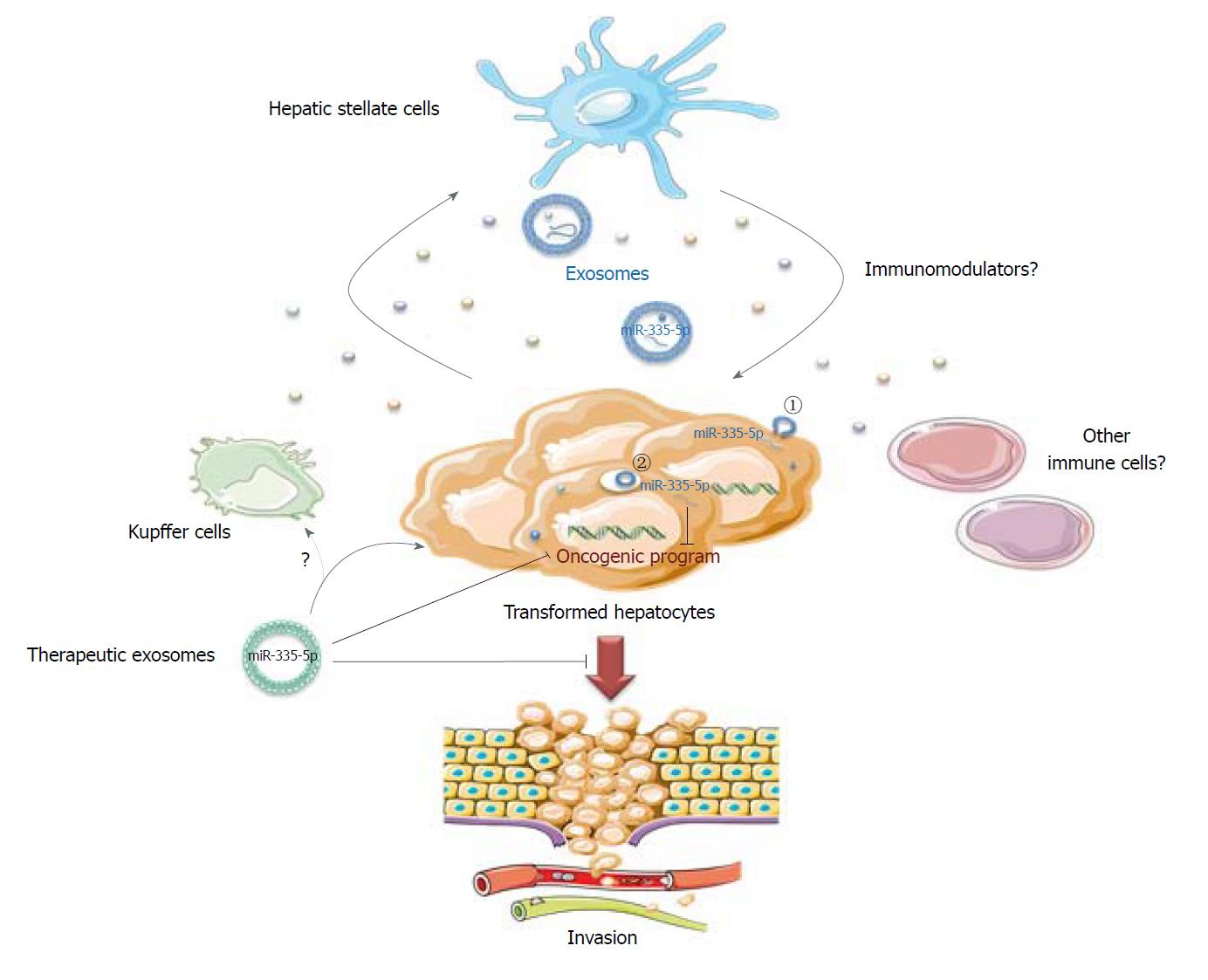Copyright
©The Author(s) 2018.
World J Hepatol. Nov 27, 2018; 10(11): 785-789
Published online Nov 27, 2018. doi: 10.4254/wjh.v10.i11.785
Published online Nov 27, 2018. doi: 10.4254/wjh.v10.i11.785
Figure 1 An exosomal miR-335-5p-based therapy for hepatocellular carcinoma.
In the case of hepatocellular carcinoma, miR-335-5p is lost in cancer cells, favoring cell proliferation and invasion. The hepatic stellate cells could counteract these pro-malignant features by secreting exosomes containing nucleic acids and miRNAs, including miR-335-5p, which are captured by HCC cells by a direct fusion with recipient cell membrane (1) or by endocytosis (2). Mimicking this biological process, therapeutic exosomes, either isolated from patients or bioengineered exosome mimetics, loaded with miR-335-5p might slow cell proliferation, promote apoptosis and limit cell invasion. It remains to be determined whether other immune cells could participate in this material transfer and which immunomodulators could regulate this exchange.
- Citation: Gougelet A. Exosomal microRNAs as a potential therapeutic strategy in hepatocellular carcinoma. World J Hepatol 2018; 10(11): 785-789
- URL: https://www.wjgnet.com/1948-5182/full/v10/i11/785.htm
- DOI: https://dx.doi.org/10.4254/wjh.v10.i11.785









